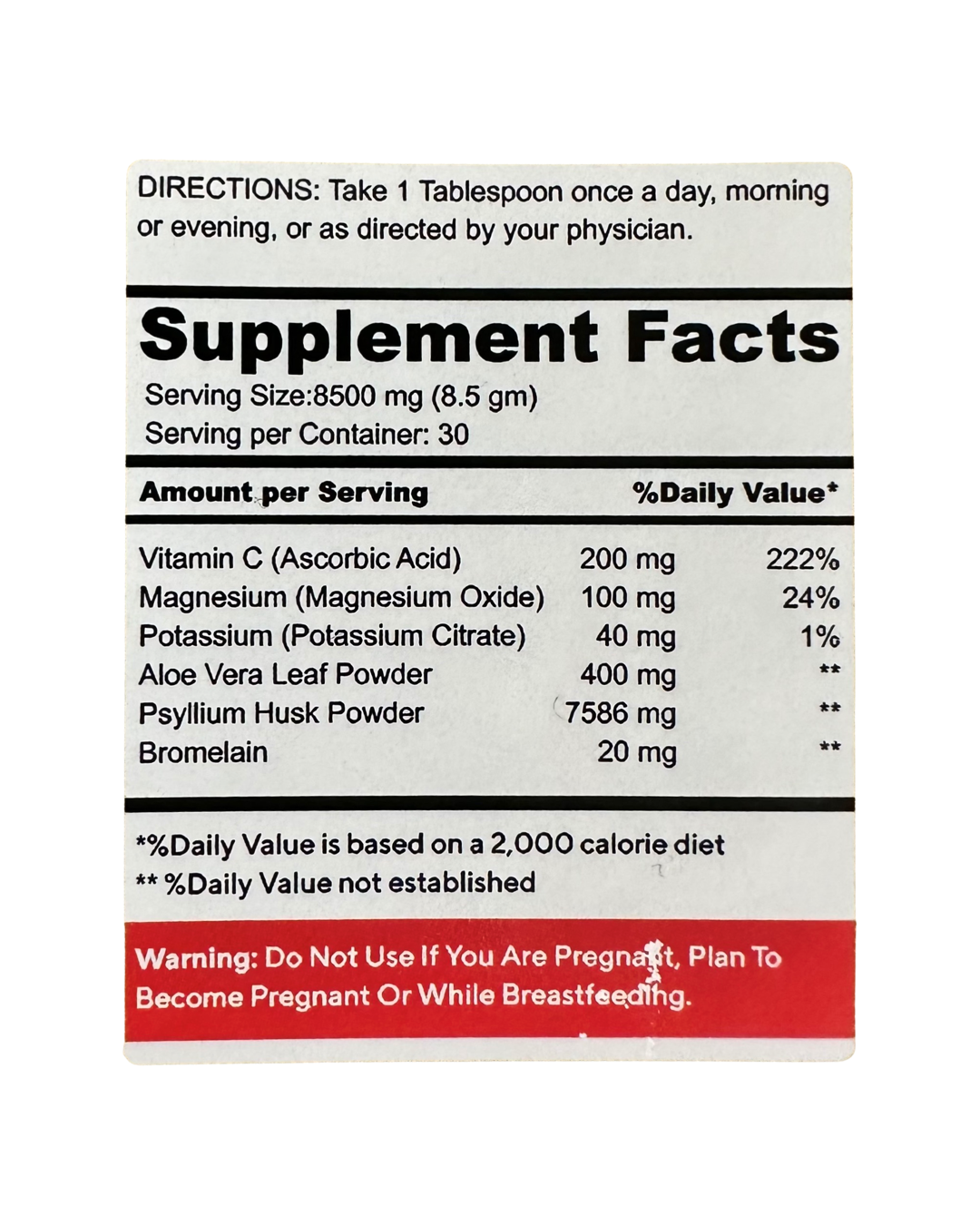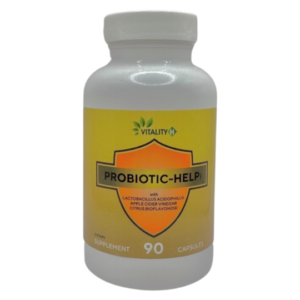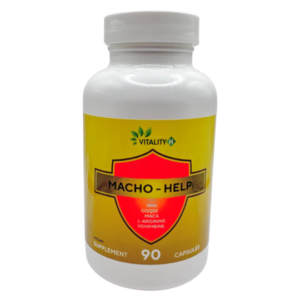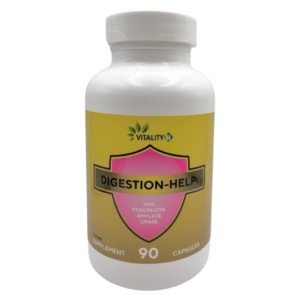
Shop
Colon Cleanser-Help
$40.00
COLON CLEANSE-HELP: nourishing herbs and good bacteria to help support the total digestive process Certain aspects of colon cleansing may be beneficial. It may help with issues such as constipation or irregular bowel movements
Description
COLON CLEANSE-HELP: nourishing herbs and good bacteria to help support the total digestive process Certain aspects of colon cleansing may be beneficial. It may help with issues such as constipation or irregular bowel movements
Vitamin C may help cleanse the colon. Vitamin C is found in many fruits and vegetables added to juice blends.. Also, try eating plenty of foods high in water content. This includes fruits and vegetables like watermelons, tomatoes, lettuce, and celery.
Fiber is an essential macronutrient to have in the diet. It’s found in whole, healthy plant foods like fruits, vegetables, grains, nuts, seeds, and more. Eat plenty of high fiber foods, which help a healthy colon. They can also be great for gut bacteria too.
Plants are source of cellulose and fibers that help “bulk” up the excess matter in the colon. They regulate constipation and overactive bowels, while boosting helpful bacteria as a prebiotic.
Juices and smoothies: Juice fast include apple juice, lemon juice, and vegetable juices. However, smoothies over juices could be more beneficial for the colon and overall health. Fiber is great for the colon, and smoothies hold a lot more fiber.
Resistant starches are similar to fiber. They’re also found in plant foods like potatoes, rice, legumes, green bananas, and grains. These promote a healthy colon by boosting gut microflora Resistant starches are found in carbohydrates. Still, if following a low carb diet, you can choose options that cause fewer blood sugar spikes. These include rice and waxy potatoes. Including these in the diet, like fiber, can be great for cleansing the colon.
Combining these with fasting, or increasing the frequency of their use, can have risks. If you have high blood pressure and must keep your sodium intake low, avoid saltwater flushes.
Colon cleanse side effects: nausea, vomiting, dizziness, dehydration, electrolyte imbalances, cramping
If any of these symptoms occur, stop your cleanse immediately and talk with your doctor. These symptoms have the risk of leading to heart failure and digestive damage if the cleanse is continued.
An enema or colon cleanse used occasionally poses little risk for a healthy individual. But overuse can quickly lead to chronic constipation or even bowel injury.
Also, talk with your doctor before making major changes to your diet for colon health. This includes eating significantly more fiber, resistant starches, juices, and smoothies.
Make sure to also be careful when using herbal teas for a colon cleanse. Some herbs can impede or affect certain medications. Laxative herbs can also be harmful if overdone. Overuse of laxatives reduces the body’s ability to move stool and can result in chronic constipation.
If you have a chronic illness, speak with your doctor before doing a natural colon cleanse at home. Colon cleanses aren’t right for everyone.
Natural colon cleanses may help improve digestive health. Whether they truly “cleanse” the colon is up for debate.
They’re also safe when not overdone. Regardless, talk with your doctor to ensure that you have the greatest experiences possible using them.
Insoluble fiber remains unchanged during digestion, helping move food through the intestines normally. This kind of fiber can be found in: fruits with edible skin or seeds, vegetables, whole-grain breads, astas, and crackers. bulgur wheat, stone ground corn meal, cereals, bran, rolled oats, buckwheat, brown rice
- Broccoli: Add broccoli to your diet, try broccoli and cauliflower casserole.
- Dark, leafy greens: Eating dark, leafy greens like spinach, kale, and chard is a great way to cleanse your colon. black bean and spinach enchiladas..
- Milk: You can use milk, cheddar cheese soupwill help you get your daily servings of both vegetables and dairy. You can also try homemade strawberry milkfor a sweet treat.
- Raspberries: Raspberries are always a delicious addition to dessert. But consider adding them to a raspberry mozzarella salad.
- Oatmeal: Turn to some of the many creative oatmeal recipes out there switch things up with savory cheddar and fried-egg oatmeal. As you prepare your oatmeal, start with the whole-grain type, such as old-fashioned or steel-cut oats. They take longer to cook but provide more fiber.
All of these foods contain high amounts of fiber, calcium, and vitamin D, which are great at keeping your digestive system working properly and preventing constipation. But if you’re not used to a diet rich in fiber or calcium, introducing lots of these types of foods at once can lead to gastrointestinal distress in the form of diarrhea, bloating, or constipation. If you’re planning on a dietary colon cleanse, add more of these foods to your diet little by little over time instead of all at once.
Healthy colon tips
Eat a high-fiber diet with lots of raw vegetables.
Drink plenty of water to stay hydrated.
Avoid eating too much red meat and processed meats, as these are linked to colon cancer.
Consider taking daily probiotics to create a more diverse bacterial environment in your colon.
Include plenty of variety in your diet. Eating a variety of foods makes a difference in colon health.
Additional Information
| Weight | 1 kg |
|---|---|
| Dimensions | 25 × 20 × 20 cm |







Reviews
There are no reviews yet.